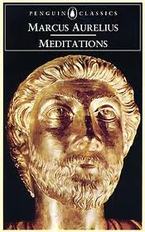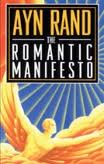 Ryan Holiday recently recommended a bunch of life-changing books that I figured I would check out. I had read some Seneca before and found it interesting (though not the most engaging of reading), so I figured I'd see what Marcus Aurelius's famous book Meditations was all about. Ryan describes the book like this: "It simply tells you how to live a little better.... At some point around 170 AD, the single most powerful man in the world sat down and wrote a private book of lessons and admonishments to himself for becoming a better, kinder and humbler person." I think that's a pretty accurate description of this book, though most of the lessons seem pretty obvious and are more like common sense (which is fine). I found this book to be even less structured than Seneca's, flowing from topic to topic like a brain dump from the author. Though I didn't hear many ideas that I hadn't been exposed to before, I did enjoy hearing about the general principles and outlook of the people who lived 1,843 years ago. I saw a lot in common between the general concerns and thinking of those people and the people who live today, but I also saw some marked differences, such as in the discussions of the roles of men vs. women as well as the respect for history and the sages. Below are some of my takeaways and the points that stood out to me the most.
0 Comments
 The next Ayn Rand book I had on my list which I just finished is The Romantic Manifesto: A Philosophy of Literature. In this book, Rand discusses her philosophy of aesthetics and art, applying principles of Objectivism to those areas. In a nutshell, she says that the role of art is to show the artist's metaphysical value judgments and allow viewers to make to see their mind's concepts crystallized in a perceptual (physical) form for the purpose of self-reflection. She says that art is not a "nice to have" but required for man's survival and integration of the proper concepts into his own philosophy and values. She proposes that (Romantic) literature should show the heroism and greatness of man, not as he is but as he ought to be and could be. This is in contrast to the school of Naturalism, which focuses on everyday men and their foibles and problems, focusing on their limitations and lack of control. It was neat to see something that appears so murky and subjective as art clearly defined and structured. I enjoyed her dissection of the different elements of a novel and the ways they are implemented in Romantic vs. Naturalistic styles. I enjoyed the author's application of the book's concepts in analyzing her own literature and other contemporary novels and films, including some James Bond films. Finally, I have a good argument for why James Bond films rock! I have read a bit of the authors she recommends, like Hugo and Dostoevsky, but I definitely need to check these guys out again, looking at their work from the viewpoint of Rand's philosophy. |
Archives
June 2024
Categories
All
Subscribe |
 RSS Feed
RSS Feed
